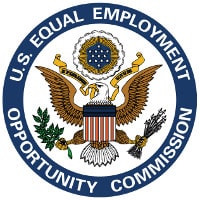 EEOC News:
EEOC News:
SOCORRO — Res-Care and Equus Workforce Solutions (Res-Care), nationwide job-assistance companies doing business in New Mexico, violated federal law when they discriminated against an employee with a high-risk pregnancy and disabilities, and retaliated against her for requesting a reasonable accommodation, the U.S. Equal Employment Opportunity Commission (EEOC) charged in a lawsuit filed Friday.
According to the EEOC lawsuit, Res-Care knew about Cheyenne Benavidez’ high-risk pregnancy and associated disabilities, punished her for pregnancy-related medical absences, failed to provide disability accommodations, and later fired her. Res-Care used a rigid planned time-off attendance policy which violated the law and prohibited employees from requesting leave from work as a reasonable accommodation for a disability and pregnancy-related conditions.
This alleged conduct violates Title VII of the Civil Rights Act of 1964, which prohibits discrimination based on sex, pregnancy, childbirth, or related medical conditions and the Americans with Disabilities Act, which protects workers who require a reasonable accommodation for their disability in order to participate in the workforce.
The EEOC filed suit against Res-Care, Inc., doing business as BrightSpring Health Services, and Arbor E&T, LLC, doing business as Equus Workforce Solutions (Civil Action No. 1:23-cv-00856), in the U.S. District Court of New Mexico after first attempting to reach a settlement through its pre-litigation conciliation process. The lawsuit seeks back pay, compensatory and punitive damages, as well as appropriate injunctive relief to prevent such alleged discriminatory practices in the future.
“A company’s leave policy cannot override federal legal protections for pregnant workers and workers with disabilities,” said Regional Attorney Mary Jo O’Neill of the EEOC Phoenix District Office. “Employers must determine what reasonable accommodation, such as additional leave or modification to existing company leave policies, might be possible for these workers with high-risk pregnancies. While this case was brought under Title VII, which has been protecting pregnant workers for decades, it highlights the need for the broader protections now in place under the new Pregnant Workers Fairness Act (PWFA).”
“It is unlawful for employers to discipline or discharge workers with disabilities, including high-risk pregnancies and related medical conditions, especially without determining whether a reasonable accommodation could be afforded to help the employee perform the job,” April Klug, director of Albuquerque Area Office said.
“Pregnancy and disability discrimination laws often intersect, especially when an employee is pregnant and has underlying medical impairments, or medical impairments caused by the pregnancy,” Assistant Regional Attorney Christina Vigil said. “Employers have a duty to provide reasonable accommodations for employees who have medical impairments during their pregnancy, just like they would any other medical impairment that is considered a disability under the ADA.”
For more information on disability discrimination, visit https://www.eeoc.gov/disability-discrimination. For more information on pregnancy discrimination, please visit https://www.eeoc.gov/pregnancy-discrimination. For more information about the Pregnant Workers Fairness Act visit https://www.eeoc.gov/statutes/pregnant-workers-fairness-act.
The EEOC’s Phoenix District Office is charged with enforcing federal employment discrimination laws in in Arizona, Colorado, Utah, Wyoming and New Mexico.
The EEOC advances opportunity in the workplace by enforcing federal laws prohibiting employment discrimination. More information is available at www.eeoc.gov. Stay connected with the latest EEOC news by subscribing to our email updates.

